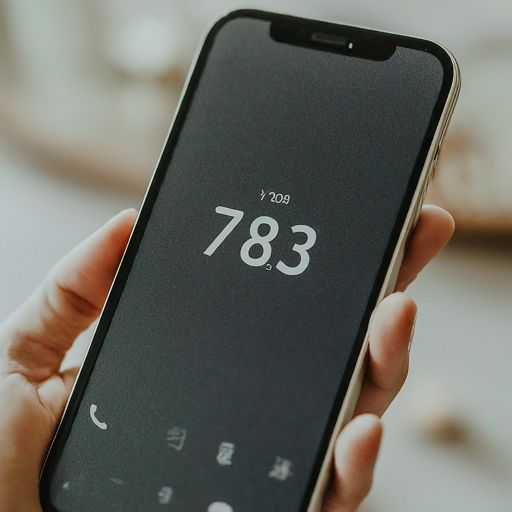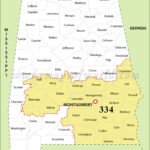The query for the 783 area code is complex because 783 is currently an unassigned area code within the North American Numbering Plan (NANP). This means that a standalone number starting with 1-783 is not currently in service for any specific geographical region in the United States, Canada, or the Caribbean.
However, the three-digit sequence -783- is actively used as a prefix (the exchange code) within several existing US area codes, linking the number to specific geographical locations. This article provides a definitive breakdown of where the 783 prefix is used and evaluates the potential scam risk associated with receiving a call that contains this number sequence.

The Status of Area Code 783
As of the current date, Area Code 783 is designated as unassigned. It is reserved for future use by the North American Numbering Plan Administrator (NANPA) but does not yet serve a full geographical region.
Therefore, if you receive a call where the initial three digits after the country code are 783 (i.e., 1-783-XXX-XXXX), it is highly likely to be a scam attempt or a fraudulent call, as the number combination should not be in use.
Where the “783” Prefix is Actively Used
While “783” is not a dedicated area code, the prefix is legitimately assigned to specific rate centers in various US states when combined with a valid area code (NPA). If you see a number that starts with a valid area code followed by the 783 prefix, the call originates from a real location.
Here are examples of locations where the 783 prefix is legitimately assigned:
| Full NPA-NXX | State | Primary City/Rate Center | Time Zone |
| 816-783 | Missouri (MO) | Kansas City Area | Central Time (UTC-6) |
| 970-783 | Colorado (CO) | Grand Junction Area | Mountain Time (UTC-7) |
| 402-783 | Nebraska (NE) | Raymond | Central Time (UTC-6) |
| 678-783 | Georgia (GA) | Atlanta Area | Eastern Time (UTC-5) |
Non-NANP Uses of 783
It is important to note that outside of the North American Numbering Plan, the three-digit sequence “783” can be a legitimate city code in other countries, such as Corrientes, Argentina, where it serves as a city code within that country’s dialing plan.
Scam Risk Analysis: Calls Containing “783”
The risk of a scam is tied to how the digits are presented on your Caller ID.
High-Risk Scenario: The “1-783” Area Code Call
If your caller ID shows a number starting with 1-783, it should immediately be treated as high-risk.
Since 783 is unassigned, a call appearing to originate from this area code is almost certainly employing Caller ID Spoofing. Scammers often use unassigned or reserved area codes to avoid blocking filters and to make their call appear unusual enough to entice a callback.
Actionable Steps for High-Risk Calls:
- Do Not Answer: If the full number starts with 1-783, do not answer or call back.
- Block and Report: Immediately block the number and report it to your carrier and the FCC.
Low-to-Moderate Risk Scenario: The “Neighbor Spoofing” Call
If you live in a region that uses the 783 prefix (e.g., in Kansas City, MO, where numbers look like 816-783-XXXX), you may be a target of Neighbor Spoofing.
- Neighbor Spoofing is a technique where scammers spoof a number that matches your area code and prefix (NPA-NXX) to make the call appear local and trustworthy, often hoping you mistake it for a legitimate neighbor or business.
Actionable Steps for Spoofed Calls:
- Verify the Number: If you receive an unexpected call from a number that looks local (e.g., 816-783-XXXX), let it go to voicemail. A legitimate caller will leave a message.
- Search the Number: Search the full 10-digit number online. Many spoofed numbers are quickly flagged on scam-tracking websites.
Frequently Asked Questions
Is Area Code 783 an international code?
No, Area Code 783 is reserved under the North American Numbering Plan (NANP). International area codes that use the NANP (like 473 for Grenada or 876 for Jamaica) are commonly used for costly “one-ring” scams, but 783 itself has not been assigned to a country. Any call starting with 1-783 is likely a spoofed or fraudulent call.
How can I be sure a call from a 783 prefix is legitimate?
A call with the 783 prefix is only legitimate if it is preceded by an assigned area code, such as 816-783-XXXX (Kansas City, MO) or 970-783-XXXX (Grand Junction, CO). If you are not expecting a call from those specific geographic areas, or if the number appears to be only 1-783 followed by seven digits, treat it as highly suspicious.
What should I do if I receive a robocall from a number containing 783?
If you receive a robocall, whether the number is spoofed or not, you should:
- Hang up immediately. Do not press any numbers, as this confirms your number is active.
- Block the number.
- Do not call back. Calling back, especially if it’s an illegitimate 1-783 number, may connect you to a premium-rate service.
Conclusion
The 783 area code is currently unassigned and should not be used as a standalone area code. Its appearance on your caller ID is a strong indicator of a spoofed or scam attempt, designed to exploit your trust or curiosity. While the -783- prefix is legitimately assigned to exchanges within other US area codes (like 816, 970, and 402), general consumer best practice remains: do not answer or return calls from any unfamiliar number, especially one that uses an unassigned area code like 783. Always let unknown calls go to voicemail and verify the number before engaging.


